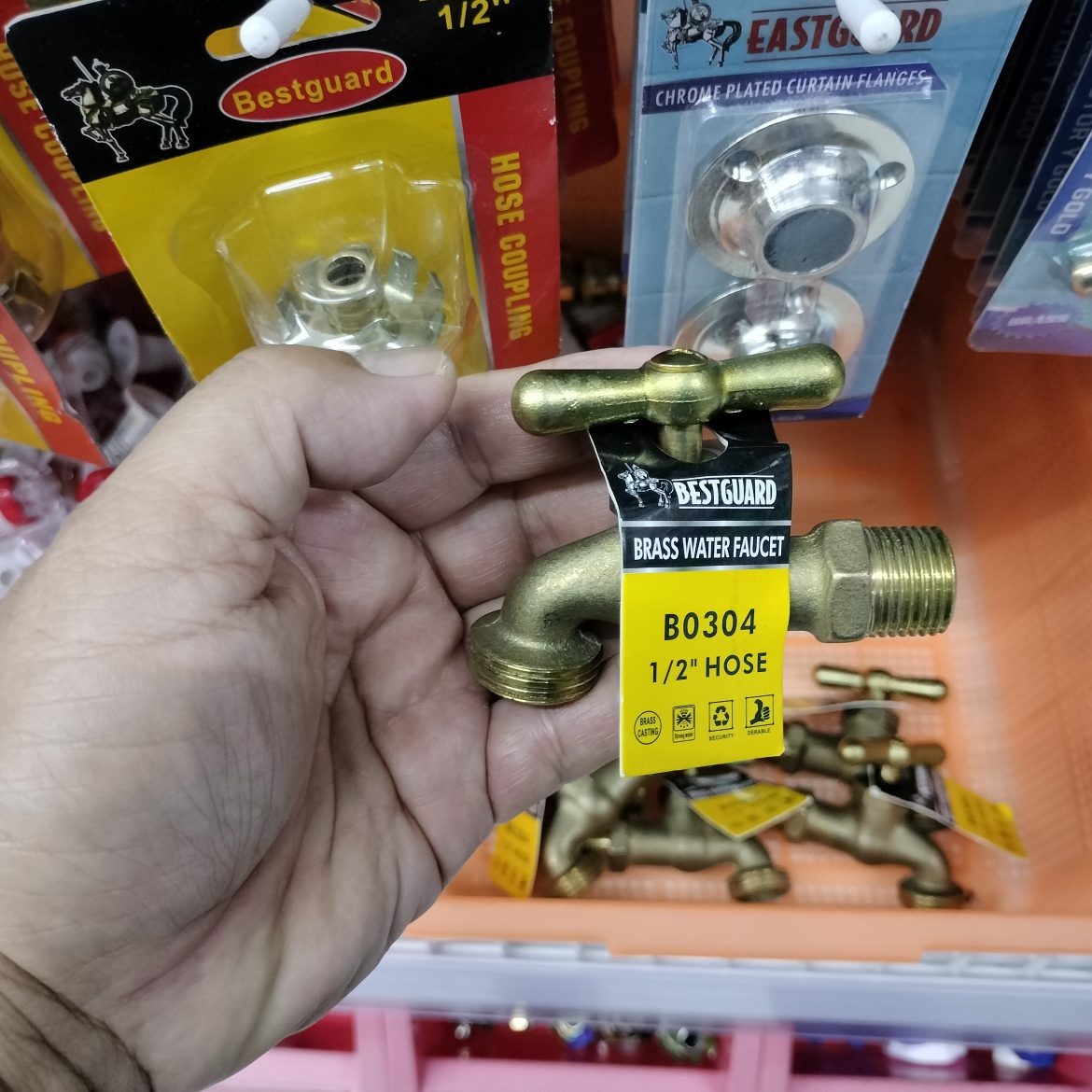Quezon City. In an urgent request initiated by the EcoWaste Coalition and endorsed by 26 civil society organizations, the Department of Environment and Natural Resources (DENR) and the Department of Trade and Industry (DTI) were asked to regulate toxic metals in water faucets after tests indicated alarming levels of lead, as well as cadmium, in the analyzed products.
In separate responses received on July 2, the DTI through the Bureau of Philippine Standards (BPS) and the DENR through the Environmental Management Bureau (EMB) thanked the EcoWaste Coalition “for (its) continued advocacy in promoting public health and safety” and “for its continued vigilance and support,” assuring the group that their recommendations will be looked into.
Following the discovery of high levels of lead and cadmium in some faucets being sold in the market, the EcoWaste Coalition requested the DTI through the BPS to a) develop mandatory standards limiting lead and cadmium content in faucets and other plumbing fixtures; and b) include faucets in the list of products covered under mandatory certification, along with the appropriate labeling and/or marking requirements.
“Please be assured that your concerns and recommendations are being carefully considered. The BPS will evaluate the matter in coordination with relevant government agencies and stakeholders, in line with its mandate to ensure product quality and consumer safety,” the BPS said.
DENR-EMB informed the EcoWaste Coalition that, “based on (their) records, there are no existing registrants of lead and cadmium manufacturers, specifically for water faucets and other fixtures.”
“We will be coordinating with the Department of Health (DOH) for the possible issuance of public advisory concerning old lead pipes, fixtures with heavy metals content on the health effects on the general public in relation to World Health Organization (WHO) standards. Further, we have taken note of your policy recommendations, and we will further review and coordinate this with other stakeholders,” the EMB said.
In line with the group’s advocacy to protect human health and the environment from hazardous chemicals, the EcoWaste Coalition purchased 27 assorted faucets from 10 general merchandise and hardware stores in Manila City and from five online stores and had them analyzed for chemicals of concern. The samples were obtained from May 18 to 22 for P81 to P320 each. The products had inadequate to zero labeling information.
The group screened the faucets for heavy metals using an Olympus Vanta M Series X-Ray Fluorescence (XRF), a handheld analytical device that can identify materials and elements without destroying the sample.
Based on the XRF screening results, 19 of the 27 faucets screened positive for lead and/or cadmium at levels exceeding the limits under the Restriction of Hazardous Substances or RoHS of the European Union, which are 1,000 and 100 parts per million (ppm) for lead and cadmium, respectively. Also, the levels of lead found on the 19 faucets exceeded the 0.25 percent (equivalent to 2,500 ppm) limit for lead in faucets under the US Reduction of Lead in Drinking Water Act.
The group then chose five samples with high lead content for confirmatory analysis by an independent private laboratory. According to the laboratory tests, the five samples contained lead in the range of 60,400 ppm to 76,100 ppm, making them non-compliant to the EU and US limits.
The investigation conducted by the EcoWaste Coalition was triggered by the product recall order issued by the US Consumer Product Safety Commission (CPSC) last May 15 against nine brands of China-made faucets, “which were tested and found to contain lead that can leach into water at levels that can be particularly harmful to infants, young children and women.”
The CPSC warned, “Lead ingestion can cause harmful neurological effects on infants, young children, and pregnant women, including attention-related behavioral problems, decreased cognitive performance, and lower IQ.” It further advised the public “to stop using and dispose of these faucets immediately.”
Lead and cadmium are highly toxic substances belonging to the DENR’s Priority Chemicals List (PCL) with corresponding Chemical Control Orders (CCOs). These substances are also among the “10 chemicals of major public health concern” as per the WHO.
The implementation of the recommended policy actions, the EcoWaste Coalition said, will contribute to the advancement of the Sustainable Development Goals (i.e., SDG #3 on good health and well-being, SDG #6 on clean water and sanitation and SDG #12 on sustainable consumption and production), as well as the Global Framework on Chemicals – For a Planet Free of Harm from Chemicals and Waste (i.e., strategic objective D on safer alternatives and innovative and sustainable solutions).
It will further advance the realization of the resolution recently adopted by the World Health Assembly urging member states “to commit to a shared vision for a world free of lead exposure and prioritize efforts to address this pressing global health challenge,” among other aspirations, the group emphasized.



